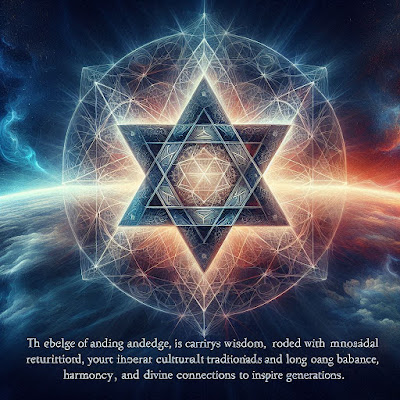Introverted Intuition (Ni): The Mastermind’s Compass
Unveiling the Inner Compass: How Introverted Intuition Guides Visionary Thinking
Introverted Intuition (Ni) is often referred to as the compass of the masterminds, providing a sense of direction that emerges from within. It’s the hallmark function of INTJs and INFJs, two types known for their ability to see beyond the surface and anticipate future possibilities.
Let’s delve into how Ni works, its strengths and challenges, and how to cultivate it effectively.
What Is Introverted Intuition (Ni)?
Ni is a perceiving function focused inwardly, synthesizing information to uncover patterns, meanings, and long-term implications. It connects disparate ideas into cohesive insights, often without conscious effort.
Ni-dominant individuals experience sudden flashes of understanding—intuitive leaps that seem to come out of nowhere. However, these insights are the result of their subconscious mind analyzing data collected over time.
Metaphor for Ni: Imagine walking through a foggy forest with no clear path. Ni acts like an internal GPS, guiding you based on unseen connections rather than external landmarks.
Strengths of Ni
- Visionary Thinking
Ni users excel at long-term planning, seeing outcomes that others might miss. This makes them natural strategists in both personal and professional realms.
- Example: An INTJ project manager might anticipate potential roadblocks in a project months in advance, crafting contingency plans to avoid them.
- Pattern Recognition
Ni can identify hidden trends, themes, or meanings, making it invaluable for problem-solving and creative work.
- Example: An INFJ counselor might intuitively grasp the emotional root of a client’s struggle after hearing just a few details.
- Future-Oriented Decision-Making
Ni allows individuals to align their present actions with their long-term vision, ensuring that short-term choices lead to meaningful outcomes.
Challenges of Ni
- Over-reliance on Intuition
Ni users can become so focused on their inner world that they dismiss external data or opposing viewpoints. This can lead to tunnel vision.
- Example: An INTJ might overlook immediate feedback in favor of sticking to their long-term plan, even when adjustments are necessary.
Difficulty Articulating Insights
Because Ni operates subconsciously, its users can struggle to explain their reasoning to others. This often leads to frustration when their insights aren’t understood or accepted.Overwhelming Introspection
Ni users may become lost in their thoughts, overanalyzing situations or obsessing over “what if” scenarios.
MBTI Types That Rely on Ni
- Dominant Ni: INTJ, INFJ
- Auxiliary Ni: ENTJ, ENFJ
For these types, Ni is central to their decision-making and perception of the world. It shapes their ability to craft visions, lead with insight, and make sense of complex systems.
Cultivating Ni
Whether you’re a natural Ni user or want to strengthen this function, here are some practical tips:
- Reflect and Journal
Spend time writing about your thoughts and visions. This helps bring subconscious insights into the conscious realm.
- Exercise: Write down recurring themes in your life. What patterns emerge?
- Engage in Big-Picture Thinking
Challenge yourself to consider long-term implications of current events or decisions.
- Exercise: Map out where you see yourself in five or ten years and the steps required to get there.
Trust Your Intuition
When you have a “gut feeling,” take time to explore it. While not every instinct will be correct, regularly engaging with your intuition strengthens it over time.Explore Symbolic Systems
Ni thrives on abstract connections. Dive into symbolic systems like mythology, philosophy, or even sacred geometry to deepen your intuitive understanding.
Conclusion
Introverted Intuition is a profound gift, enabling its users to navigate the world with clarity and foresight. By understanding and refining this function, individuals can unlock their potential as visionaries and strategists, shaping a meaningful path for themselves and others.
Further Reading
- Personality Types: Using the Enneagram for Self-Discovery by Don Richard Riso
- Psychological Types by Carl Jung
- Intuitive Thinking as a Spiritual Path by Rudolf Steiner






Comments
Post a Comment